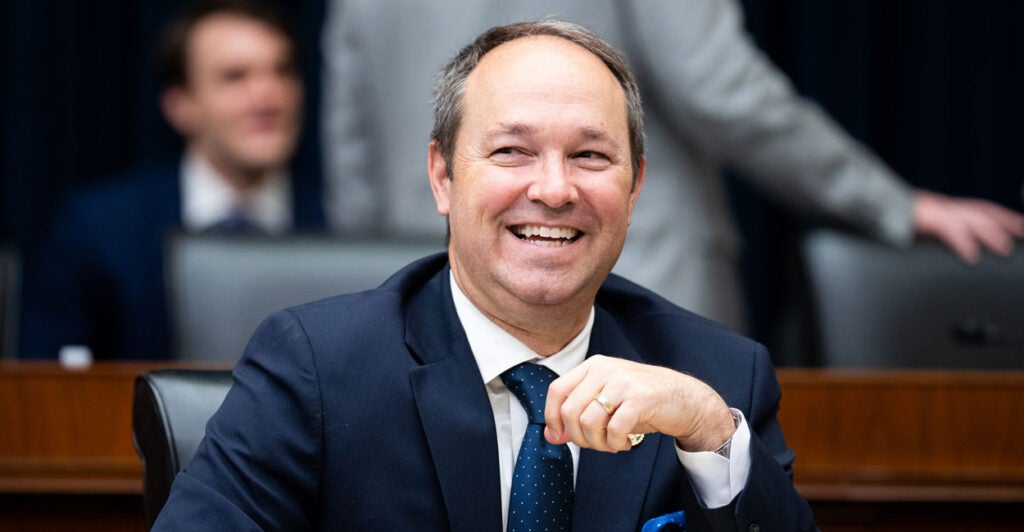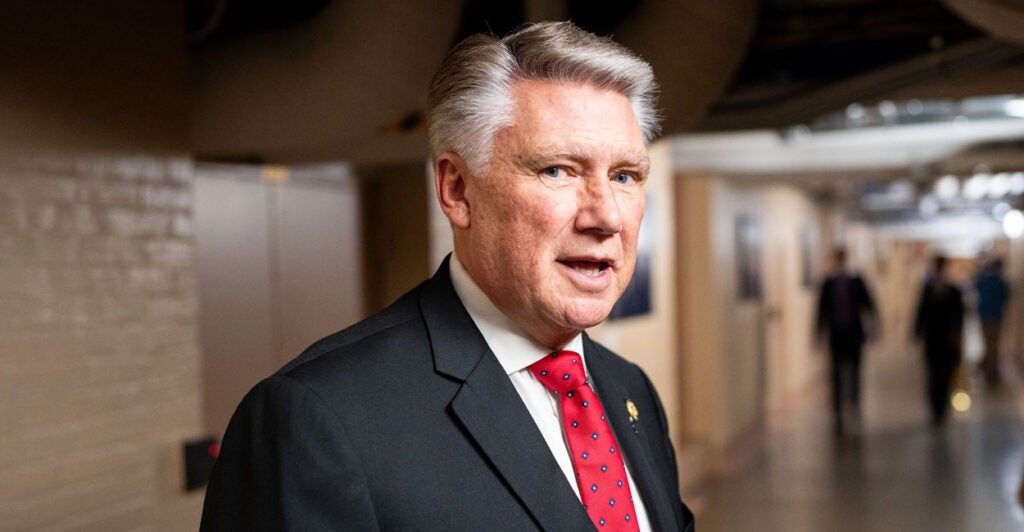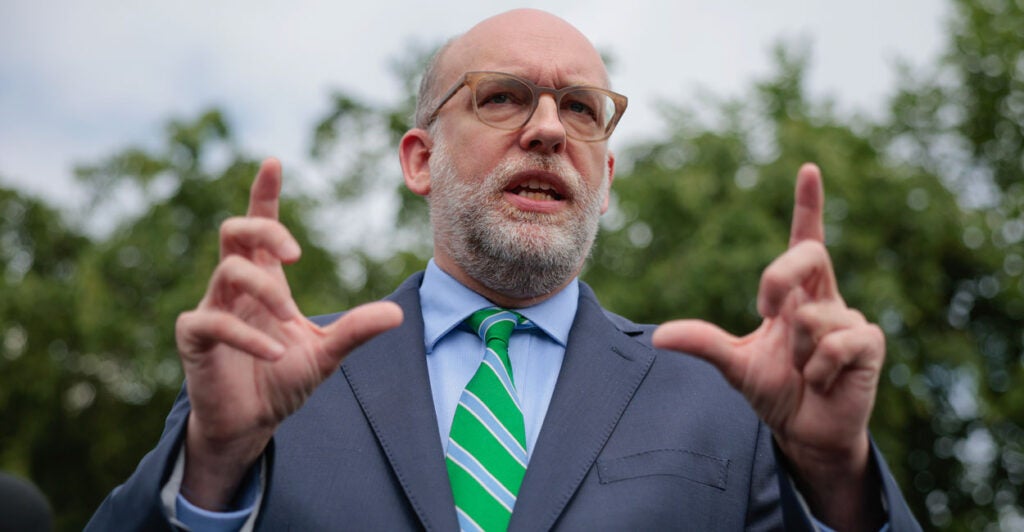The White House’s delivery to the House of Representatives of a package that would codify some of the Department of Government Efficiency’s cuts into law was greeted with enthusiasm by the fiscally hawkish House Freedom Caucus on Tuesday.
The rescissions package, delivered by the White House Office of Management and Budget (OMB) to Republican House leadership, would codify $9 billion in cuts to USAID, as well as funds to National Public Radio (NPR) and the Public Broadcasting Service (PBS).
Rescissions packages can be passed with a simple majority in both chambers and are exempt from the Senate filibuster.
Rep. Marlin Stutzman, R-Ind., who “100%” supports the package, told The Daily Signal that it would help calm voters who are concerned about spending levels.
“Especially following up on the ‘one big, beautiful bill,‘ there’s still concern by our voters that we didn’t cut enough, soon enough,” said Stutzman. “This rescissions package addresses that.”
The Indiana lawmaker said he also opposed the idea of publicly funded broadcasting on principle.
“We don’t need NPR and PBS anymore. We’ve got a healthy competitive free market for TV and radio outlets. And having one radio station or one TV outlet for the government, it makes no sense because one side’s not going to like it, because of the fact that it’s no longer neutral.”

Rep. Ralph Norman, R-S.C., also praised the package as both a fiscal and moral gift to the nation.
“This is the most ridiculous thing that taxpayers have funded with money we don’t have … and so, I’m excited,” he said of the USAID cuts, adding:
The taxpayers are sick and tired of having all these hearings and having Elon Musk identify things that are obviously not in the realm of where taxpayers want their money spent.
Rep. Mark Harris, R-N.C., urged speedy passage of the package.
“I think we need to take it as [the Office of Management and Budget] has recommended it. We don’t need to get into a lot of changing and debating and all that, because we need to save every cent that we can.”

“I hope this is just the first of a number of rescissions packages that will be coming up to the Hill,” he said, adding:
I’m certainly hopeful that that is indeed the case because, again, American people sent us up here in November of 2024 to do government differently.
Of course, $9 billion in savings is dwarfed by the federal government’s nearly $37 trillion in debt.
OMB Director Russell Vought has suggested that this package will help the White House see if the House can get behind codifying DOGE cuts.
“We remain committed in keeping impoundment on the table, so if they don’t move these cuts, we are still going to have our executive tools in fiscal year ’25 to bend and cut and reduce weaponized bureaucracy and make DOGE cuts permanent,” Vought said in May.
If Congress fails to pass this package, he has said, he will further consider the much-debated power of impoundment—the executive branch sequestering of unused funds without the need for Congress’ explicit approval.
Harris told The Daily Signal he’d be open to the idea as a cost-saving method.
“If we approve something to be done or money to be spent, and they can actually achieve the project for less than what we approve to be spent, I don’t know that the executive branch should be obligated to have to spend all of that money,” said Harris.
“That may end up, obviously, being a decision that the courts will weigh in on with that,” he added.
“But I’m certainly all for the executive branch finding ways that we’re able to correct course. There’s just so many things that I think people are forgetting, and that is the $36 trillion, nearly $37 trillion of debt … we cannot let that be forgotten.”
Stutzman also signaled openness to the executive branch impounding funds.

“And so any recommendations that come from the White House will have my support, because $36 trillion in debt and a trillion dollars of interest annually is not sustainable.”
All three members expressed some cautious optimism in the bill’s passage.
“I think it’ll be close,” Stutzman said. “I’ve not talked to a lot of other colleagues yet, but I would think that it will have a lot of support because, you know … we were downgraded [by Moody’s] with our credit rating.”
“Maybe I’m going to be surprised, but I can’t imagine a true Republican opposing taking care of this business as swiftly as possible,” said Harris.
Norman felt the same.
“We’ll find out, but we’ll never know if we don’t put it on the floor,” he said. “I think we’ve got a 45-day window that the funds won’t be spent. We got to deal with it sooner rather than later.”








